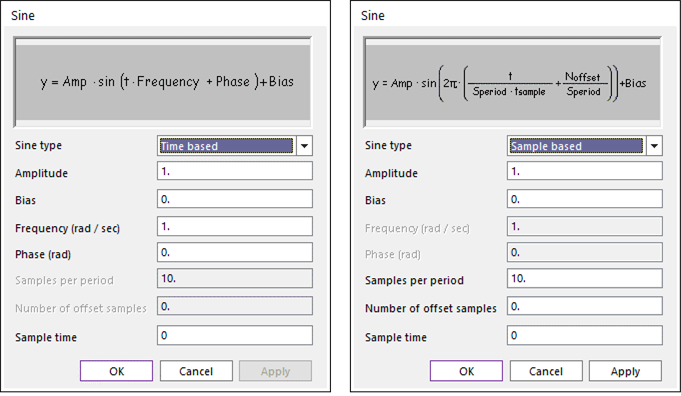20.6.1.13. Sine
The Sine block outputs a sine wave signal of:
Time-based type
Sample-based type
The time-based type cosine wave is defined by the following equation.
\(y={Amp} \cdot \sin {\left( t \cdot Frequency + Phase \right)}+{Bias}\)
The sample-based type cosine wave is defined by the following equation.
\({y}={Amp} \cdot \sin {\left( 2 \pi \cdot \left( \frac{t}{S_{period} \cdot t_{Sample}}+\frac{N_{offset}}{S_{Period}} \right) \right)}+{Bias}\)
- where,
- \(t\) is the simulation time\(y\) is the output.
Dialog box

Figure 20.46 Sine dialog box
Parameter(s) |
Description |
|
Sine Type |
Select an option as Time-based or Sample-based. |
|
Amplitude |
Enter the amplitude of sine wave. |
|
Bias |
Enter the offset value of sine wave. |
|
Frequency (rad/sec) |
Enter the frequency of time-based sine wave. |
|
Phase (rad) |
Enter the phase angle of time-based sine wave. |
|
Samples perPeriod |
\(S_{period}\) |
Enter the Number of samples per period of the sample-based sine wave. |
Number of Offset Samples |
\(N_{offset}\) |
Enter the discrete phase offset in the number of sample times for the sample-based sine wave. |
Sample Time |
\(t_{Sample}\) |
Enter the time interval between samples
|